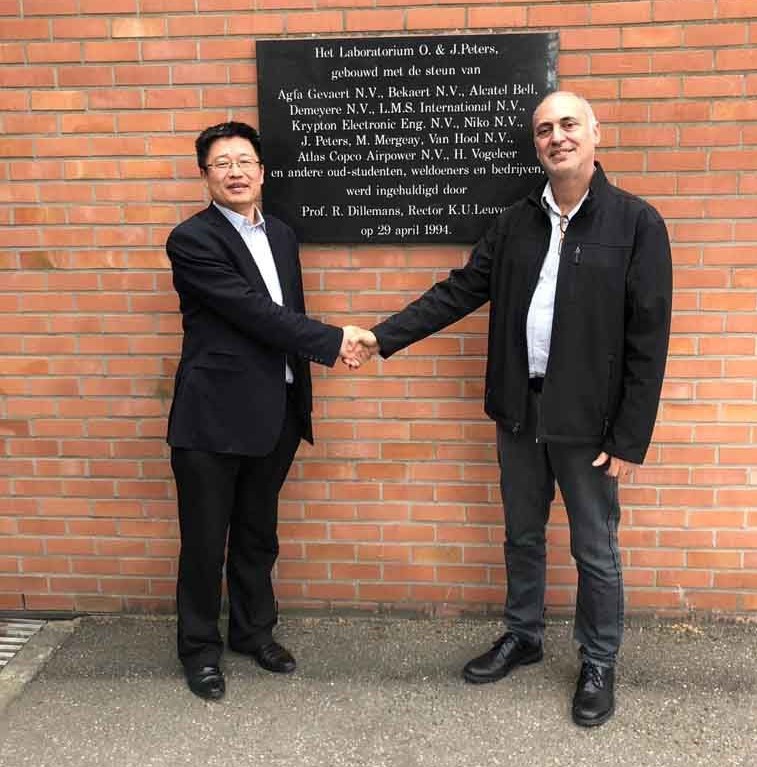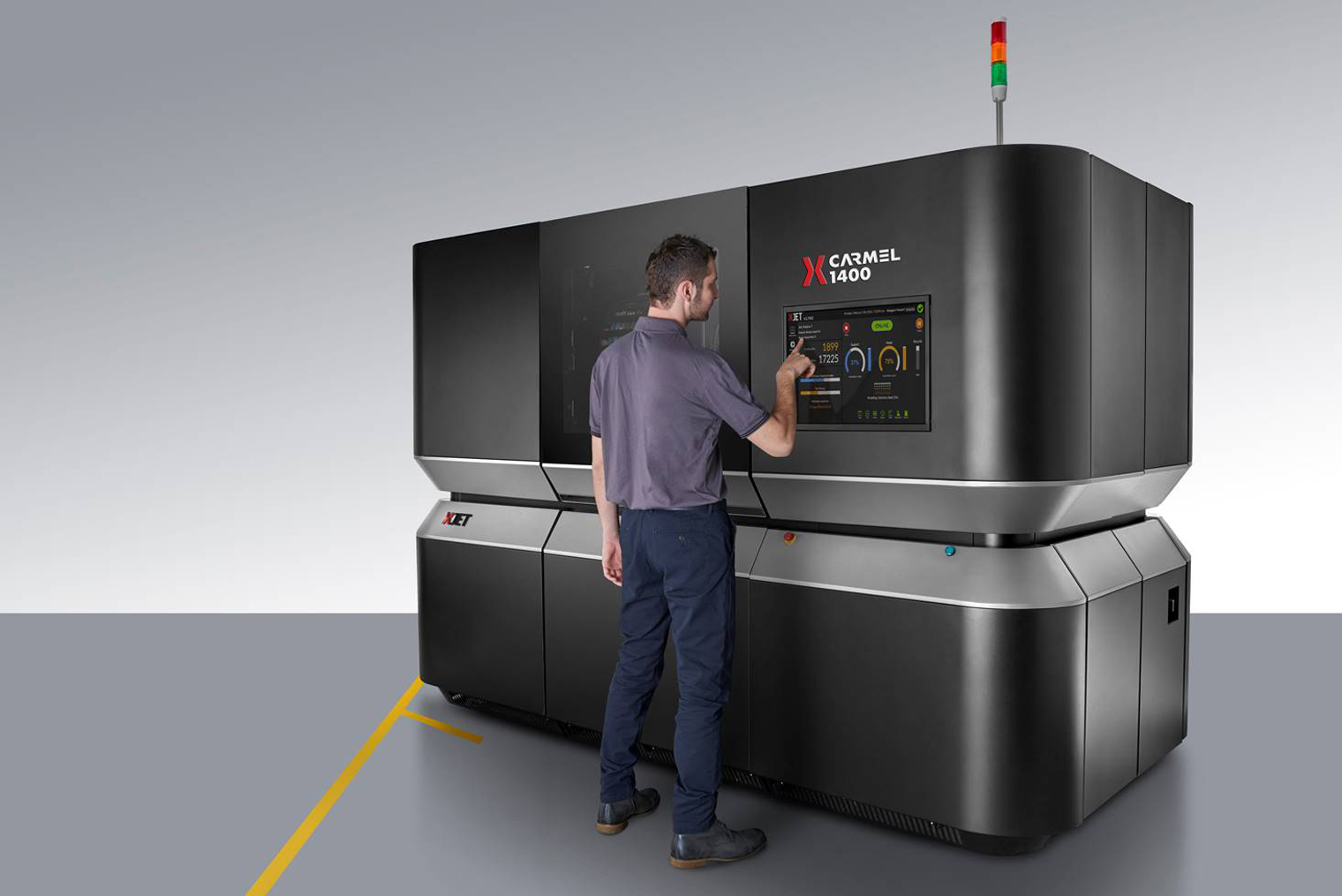Israeli 3D printer and materials manufacturer XJet it has installed one of its Carmel 1400C ceramic additive manufacturing systems at Katholieke Universiteit Leuven (KU Leuven) in Belgium. This is the first XJet system to be implemented at an academic institution within Europe.
At KU Leuven, the Carmel 1400C with XJet’s proprietary NanoParticle Jetting Technology (NPJ) will be used for research programs and to help the development of 3D printing medical opportunities in the region.
Shoufeng Yang, Professor of Additive Manufacturing at KU Leuven, is positive about the capabilities of the XJet Carmel 3D printer. “Since the Carmel was installed, we are already reaping the benefits,” commented Professor Yang. “The XJet system offers the high levels of precision and exceptional detailing required, levels which were previously impossible or extremely time-consuming in post-processing.”
“The use of soluble support materials, with no harmful powders, makes it a much easier process and opens up opportunities to innovate that simply did not exist before.”

XJet Carmel 3D printers and NPJ technology
XJet’s range of ceramic and metal 3D printers are based on its trademark NPJ 3D printing process. This method of additive manufacturing uses liquid dispersion to form 3D printed parts, as opposed to melting powdered material, a common process in many metal 3D printing technologies. In NPJ, ceramic and metallic particles are jetted into a liquid shell. As it is deposited onto the build platform, the liquid evaporates, leaving behind fused layers of ceramic or metal. The resulting parts are provided with high levels of detail, surface finish and accuracy.
XJet has employed its NPJ technology in its Carmel range of additive manufacturing systems. This includes the Carmel 1400 and the smaller Carmel 700, both with ceramic and metal iterations. In time for Formnext 2019, XJet recently rebranded the Carmel 1400 system to distinguish which platforms can process ceramic (C) or metals (M). The company will be showcasing the updated Carmel 1400M and Carmel 1400C 3D printers at Formnext later this month.
Recently, XJet was involved in negotiations to receive a $45 million investment from Chinese electrical equipment and mobile game developer Shenzhen Hifuture Information Technology Co. Ltd. The intention of the investment is to help expand XJet’s metal and ceramic 3D printing solutions in China.

Exploring ceramic 3D printing for medical applications
Now installed at KU Leuven, the Carmel 1400C will be used by academics to explore medical and pharmaceutical uses of ceramic additive manufacturing, as well as for research and educational purposes. This research is being led by Professor Yang and his team at KU Leuven, who have thus far used 3D printing to produce implants in the form of ceramic bones. Overall, the university aims to increase the adoption of 3D printing in manufacturing, and will leverage the Carmel 1400C system to accelerate additive manufacturing R&D across Europe.
“I believe that this is the best ceramic additive manufacturing method which can be easily upgraded into future multi-materials additive manufacturing, which is a grand challenge in the AM industry,” added Professor Yang. “It’s an amazing and fantastic technology for R&D in universities and for the manufacturing industry, and it’s very exciting to be a part of.”
As well as KU Leuven, XJet’s Carmel 1400C 3D printer has been installed at various other institutions in 2019 to help develop novel technologies. Researchers from the University of Delaware (UDEL), for example, are using the Carmel 1400C to develop 5G antennas. Marvel Medtech, a Wisconsin-based medical device manufacturer specializing in cancer treatment, has acquired the system to 3D print a ceramic cryotherapy probe for its Solada machine, a robotic system which allows intervention inside the MRI imaging bore.

XJet will be present at Formnext 2019, where it will have its largest stand to date. Visitors can find the company in hall 12.1 stand C01.
Subscribe to the 3D Printing Industry newsletter for the latest news in additive manufacturing. You can also stay connected by following us on Twitter and liking us on Facebook.
Looking for a career in additive manufacturing? Visit 3D Printing Jobs for a selection of roles in the industry.
Featured image shows the XJet Carmel 1400 NanoParticle Jetting system. Image via XJet.


